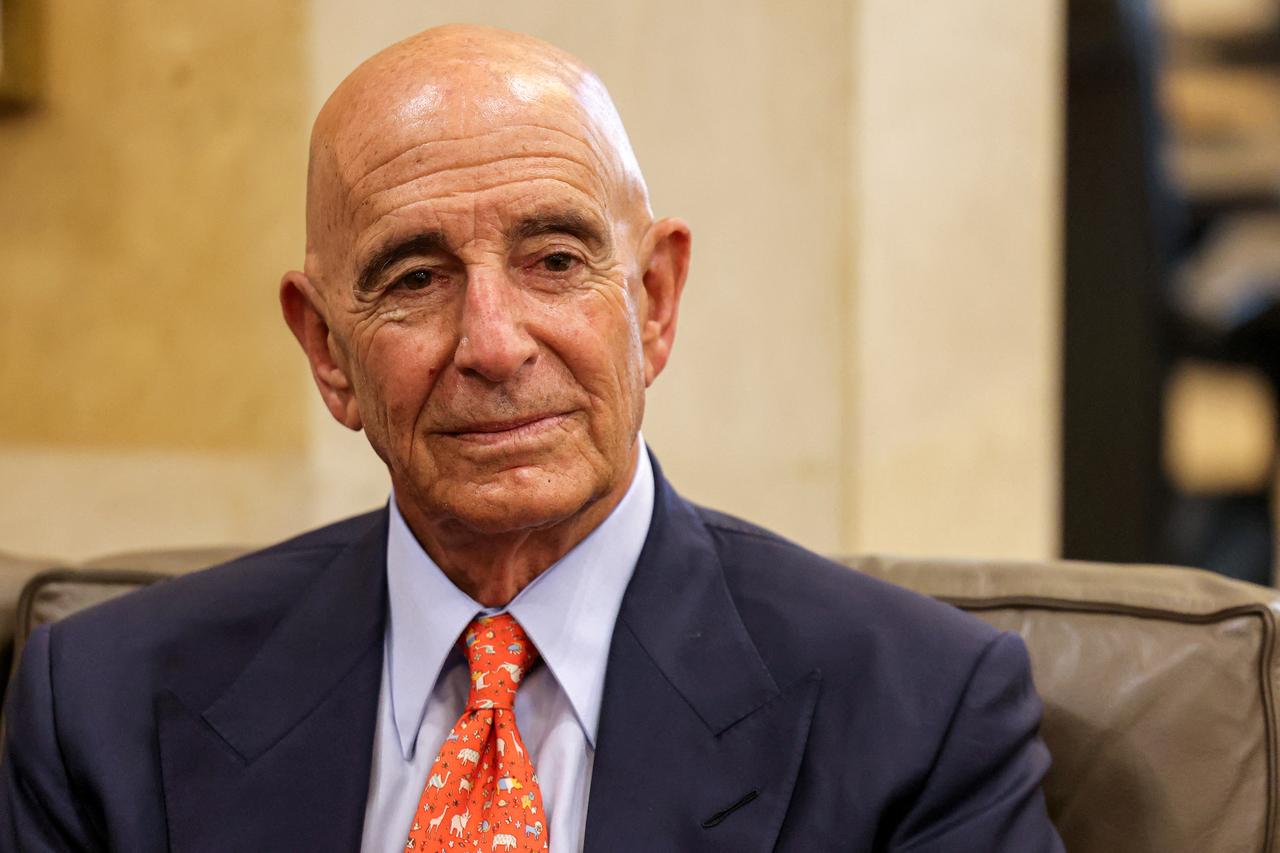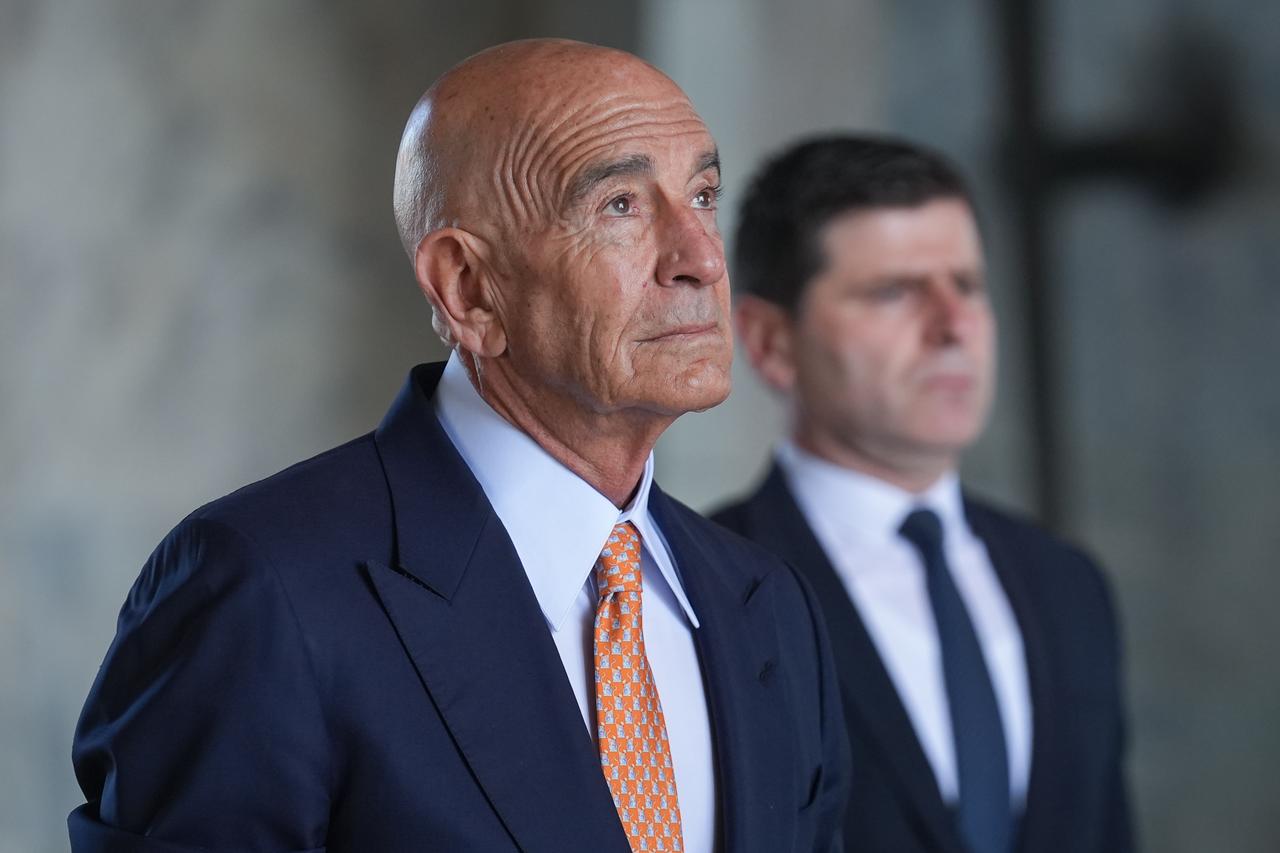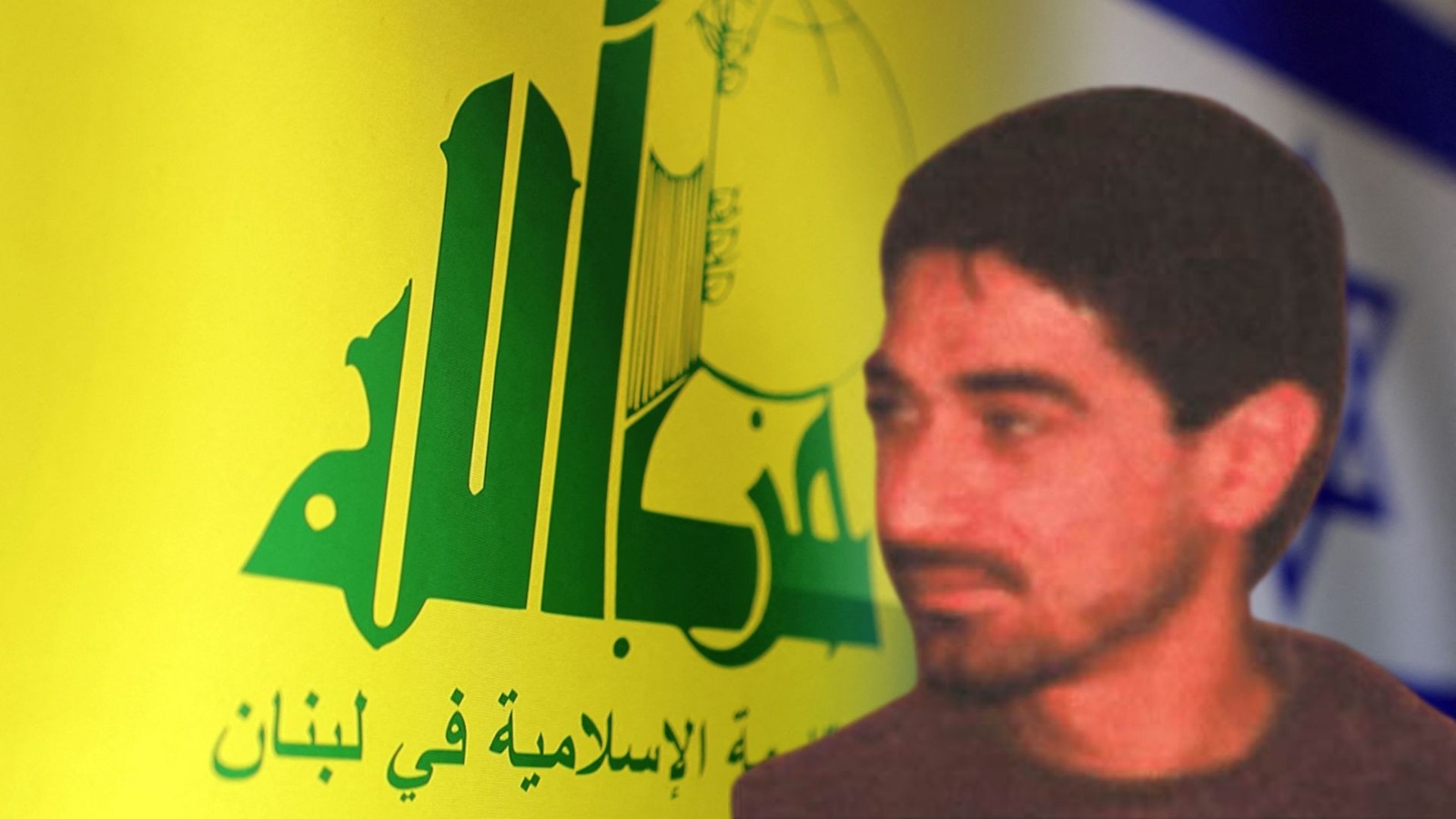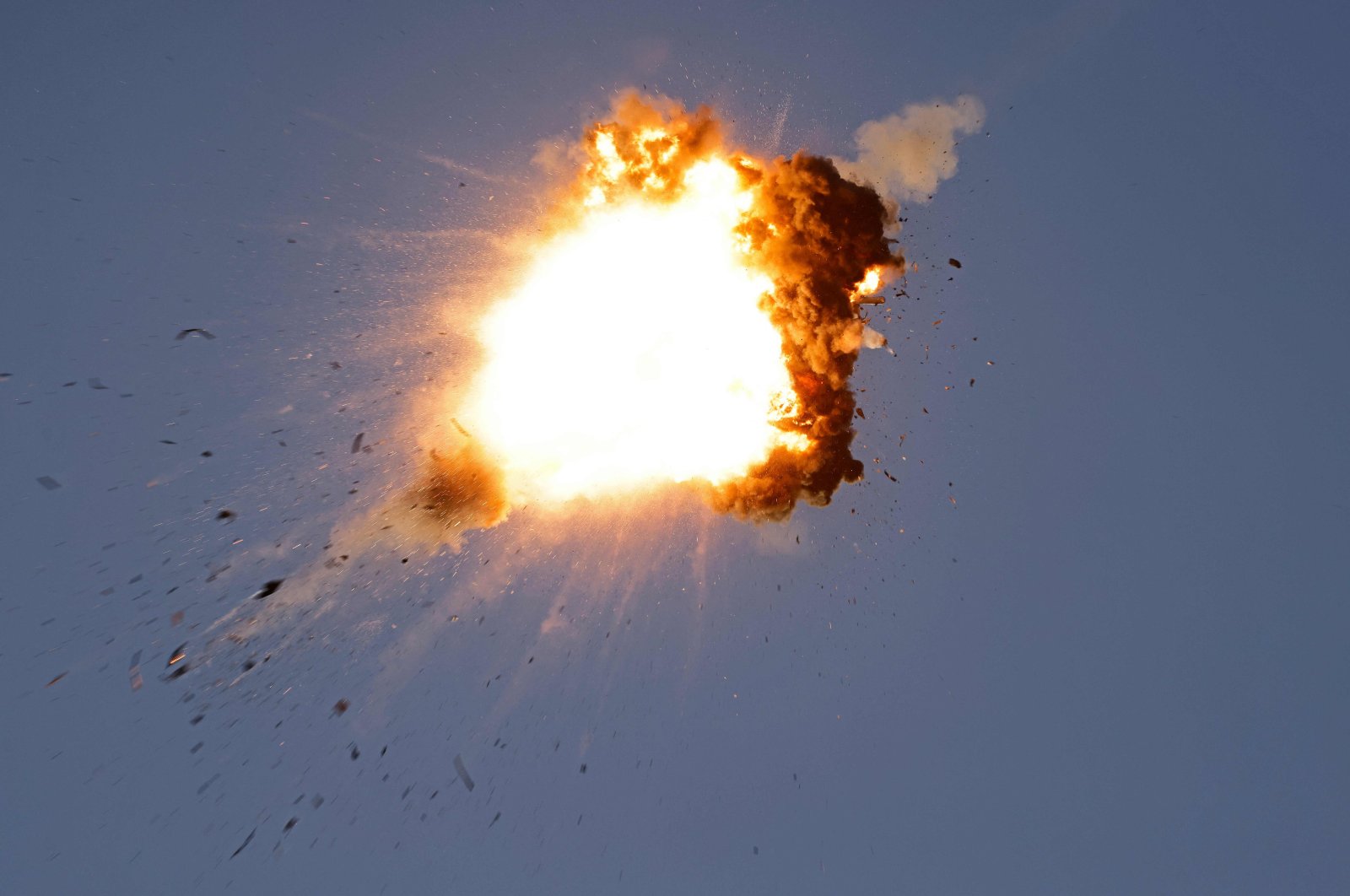
A senior U.S. diplomat delivered a stark warning to Hezbollah on Thursday, cautioning the Lebanese militant group against intervening in the escalating war between Iran and Israel.

Thomas Barrack, who serves as both U.S. special envoy for Syria and ambassador to Türkiye, made the remarks during his first official visit to Beirut, where he held meetings with top Lebanese officials, including Parliament Speaker Nabih Berri, a key Hezbollah ally.
"I can say on behalf of President (Donald) Trump... that would be a very, very, very bad decision," Barrack told reporters when asked about the U.S. position on potential Hezbollah involvement in the conflict.
The warning comes as regional tensions escalate following the outbreak of hostilities between Iran and Israel on Friday. While Hezbollah has condemned Israeli strikes on Iran, the group has not announced any intention to intervene militarily on Tehran's behalf.

Hezbollah's current militar0y capacity remains significantly diminished following its devastating confrontation with Israel last year. The conflict, which concluded with a ceasefire agreement in November, severely weakened what was once considered the most formidable component of Iran's regional "axis of resistance."
The Lebanese government has sought to distance itself from the broader regional conflict. The foreign ministry stated last week that it was "continuing its contacts" to prevent Lebanon from being drawn into any military escalation.
Following his meeting with Barrack, Lebanese President Joseph Aoun indicated that diplomatic efforts were underway to consolidate state control over weapons. "Communications are ongoing to achieve the goal of weapons monopoly at both the Lebanese and Palestinian levels, and will intensify after stability returns... to the region," Aoun said in a statement released by the presidency.

The November cease-fire agreement requires Hezbollah to withdraw its fighters north of the Litani River, approximately 30 kilometers from the Israeli border, leaving only the Lebanese army and U.N. peacekeepers in the southern border region. Israel is obligated to withdraw completely from Lebanese territory but continues to maintain troops at five positions it considers strategically important.
Despite the cease-fire, violence has continued. Israeli strikes on Wednesday killed two people in Kfar Juz in southern Lebanon and injured one person in Barish, according to the Lebanese health ministry. Israel said the attacks targeted Hezbollah members.
Lebanon has recently intensified efforts to disarm Palestinian militant groups that have long controlled refugee camps throughout the country.
Barrack expressed Washington's commitment to regional stability, stating that the U.S. was "committed to help ... so what we have altogether is hope, and that chaos will subside soon, and that out of that will come the blossoming of peace and prosperity.
Israel has maintained that it will continue military operations in Lebanon until Hezbollah is completely disarmed, despite the ongoing cease-fire arrangement.